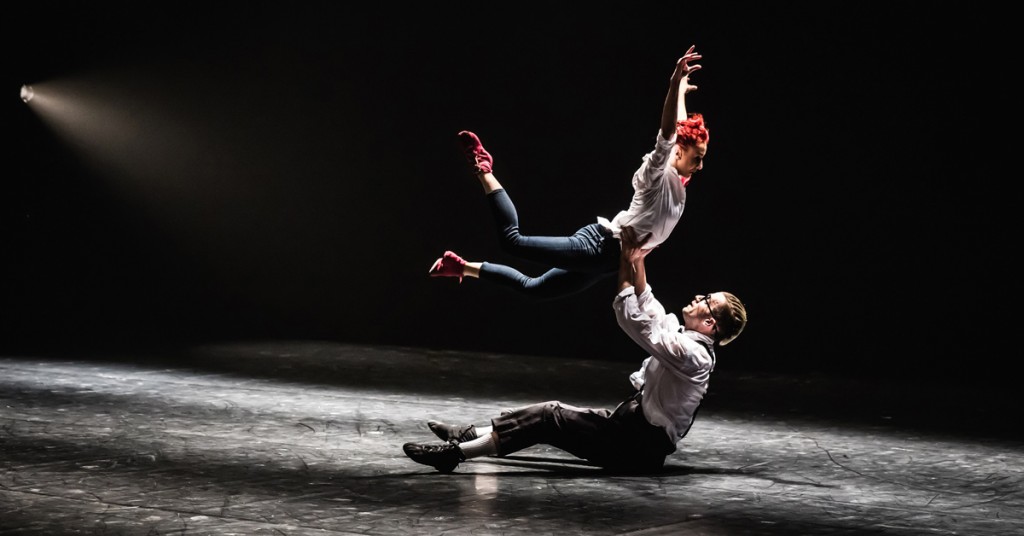 Ballets Jazz de Montréal, under the direction of Louis Robitaille, returned to the Prince Theaterto perform three Philadelphia premieres. The program recognized the remarkable abilities of the company’s dancers, as well as the variety in the work they perform.
Ballets Jazz de Montréal, under the direction of Louis Robitaille, returned to the Prince Theaterto perform three Philadelphia premieres. The program recognized the remarkable abilities of the company’s dancers, as well as the variety in the work they perform.
The opening piece, Casualties of Memory, begins with a single couple in a slow-moving contemporary duet that progresses forward down a middle pan of light. The rest of the company artists were seated upstage, holding lights in a line on either side of the middle pathway. From this meditative opening, the piece developed into an energetic feat that displayed the excellent technique of the dancers as well as the invigorating drive of the choreography.
This is an excellent piece to watch on its own, however, it was a disappointment when compared to the program’s description. According to the program, it was meant to “…emphasize gender equality. Woman as man. Man as women.” Yet the piece ended with the entire cast on stage performing choreography in either all male or all female groups that switched off. Despite the promise to create an “environment in which man supports woman, woman supports man,” there were no points in which a woman ever lifted a man. The majority of partnering throughout the work were male-female with the woman occupying a traditional role in which she is the one to be lifted and supported by the man. Men and woman even bowed separately at the end, which felt like a final ode to how the supposed meaning of the piece was largely ignored in the choreographic decisions.
The second work of the night features excerpts from Dance Me, a piece inspired by the work of Montreal-based poet, artist and songwriter, Leonard Cohen. This work transitioned through four sections touching several emotional landscapes, ultimately fulfilling a somber journey. During the Marianne section, one of the dancers sits in a spotlight at the bottom of the stage, singing quite beautifully. A flash of one still scene support this on the stage, before disappearing and returning back the dark stage and original spotlight. It is a captivating image, and this section as a whole helped the thematic transitions of the piece.
O Balcao de Amor closes the night, inspired by choreographer Itzik Galili’s trip to Cuba. Energetic and, at times, silly, this piece creates a cast of characters that dramatically interact with one another through dance. It is a welcome break from the more serious pieces of the night, nodding to the choreographer’s use of humor to evoke more from his performers.
Despite the first piece not living up to its description, this is an intriguing program. The dancing is wonderfully technical but each step is moved through in a way that feels natural for each dancer’s body. They truly enter their extremities in every piece, and it is thrilling to watch such skill displayed consistently.
[Prince Theater, 1412 Chestnut Street] February 15-18, 2018; nextmovedance.org
